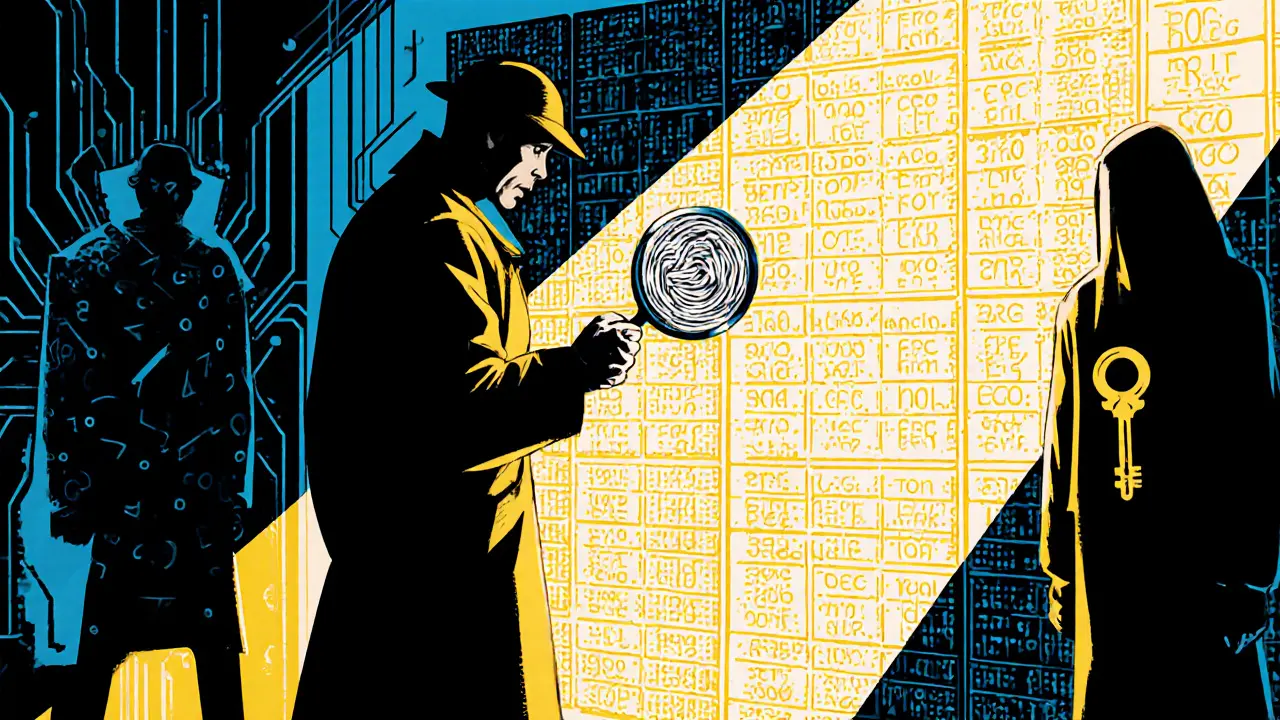How zk-SNARKs Work in Blockchain: A Simple Guide
Learn how zk‑SNARKs enable private yet verifiable transactions on blockchains, explore their inner workings, compare with zk‑STARKs, and see real‑world use cases.
Read MoreWhen diving into Blockchain Privacy, the practice of keeping transaction data, identity, and user behavior hidden on public ledgers. Also known as privacy in blockchain, it blends cryptography, network design, and legal awareness. A core enabler is Zero‑Knowledge Proofs, mathematical protocols that let one party prove a statement without revealing the underlying data, while Decentralized Identity, a self‑sovereign system where users control their credentials without a central authority. Together they form the backbone of modern privacy solutions on blockchains.
Why does blockchain privacy matter today? Public ledgers like Bitcoin record every address and amount, a feature that fuels transparency but also exposes user habits to anyone with a node. Privacy‑focused coins such as Monero or Zcash step in with built‑in shielding techniques—ring signatures, stealth addresses, or zk‑SNARKs—to break the link between sender, receiver, and value. Off‑chain mixers add another layer, shuffling coins before they re‑appear on the chain, making tracing far tougher. Encryption at the protocol level, together with these tools, lets developers build applications where users can transact, vote, or share data without fearing surveillance.
Beyond the tech, the regulatory landscape pushes privacy forward. Nations grapple with Anti‑Money‑Laundering (AML) rules, yet privacy advocates argue that anonymity is essential for financial freedom. Solutions like self‑sovereign identity give users control over KYC data, letting them reveal only what's required for a specific interaction. Meanwhile, zero‑knowledge rollups enable high‑throughput scaling while keeping transaction details off‑chain, proving that privacy and performance aren’t mutually exclusive. The rise of privacy‑preserving smart contracts means developers can embed confidential logic directly into DeFi protocols, opening doors to secret auctions, private lending, and more.
All these developments converge in a vibrant ecosystem of tools, standards, and best practices. Below you’ll find a curated set of articles that break down each piece—from modular blockchains that improve data availability to practical guides on protecting validators from slashing. Whether you’re a developer building the next private dApp or a user wanting to keep your crypto moves under the radar, this collection gives you the insight to move forward confidently.

Learn how zk‑SNARKs enable private yet verifiable transactions on blockchains, explore their inner workings, compare with zk‑STARKs, and see real‑world use cases.
Read More